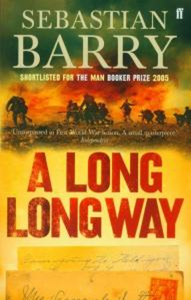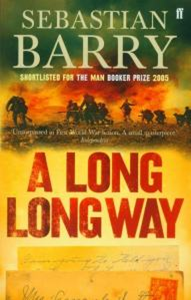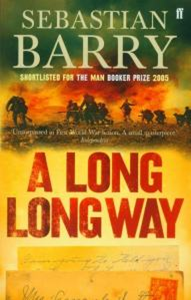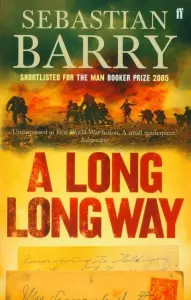
News of the death of Willie Redmond, Irish MP and the brother of John Redmond (the Irish Parliamentary Party leader) shocks the men on the front. It affects Willie, but devastates Father Buckley. Willie offers his condolences to Buckley at the latrines. Buckley takes some consolation in the recent bonhomie between soldiers from Northern and Southern Ireland after the Battle of Messines, calling it “Willie Redmond’s moment”.
After short lived fame as victors at Messines, Willie’s regiment find themselves transferred to Ypres. The persistent rain has flooded the area and the mood of the men becomes depressed again. Ypres is thick with mud and under constant bombardment. The bodies of the dead of previous battles at Ypres are uncovered by the deluge. Willie is affected by the bleakness of the new situation.
As they march across northern Flanders, Willie, Joe Kielty and Timmy Weekes console themselves with humorously seditious talk of the war, its violence and its apparent purposelessness. When they finally reach their positions on the front line they find the trenches completely degraded and have to rebuild them under fire. The trench walls encase maimed bodies and the men work without food for two days. Father Buckley works at night to find the remnants of the dead, to bury them.
On the third day the 16th leave their trenches and attack slowly over a mile of deep mud. Willie’s platoon are in the first wave. Their attack is easily stymied by machine gun fire and there are many further casualties as the German army counter-attacks. Willie is distressed to see Father Buckley digging a grave for a soldier in the face of the attack. A second supporting wave of British soldiers finally relieve Willie’s platoon, and they return to the support line.
The day after the battle news comes of the vast number of dead in the attack, of a stray mustard bomb hitting a regimental HQ- and the death of Father Buckley. Willie is upset, and accounts of the priest dying at an aid post confuse Willie.
Major Stokes visits the forward line to inspect the trenches in a strange humour. He approaches Willie Dunne and quietly asks of Willie, ‘no hard feelings, Private?’ Willie makes clear he has no feelings of resentment or anger, and Stokes, reassured perhaps, moves up the line.
The 16th remain in the line for fifteen gruelling and dangerous days in the rain and mud. Neither supplies nor planned relief reaches them. Christy Moran surprises Willie with leave to go on furlough on the recommendation of Father Buckley. As Willie leaves for Dublin, Moran tucks his medal into Willie’s great coat as a keepsake.



